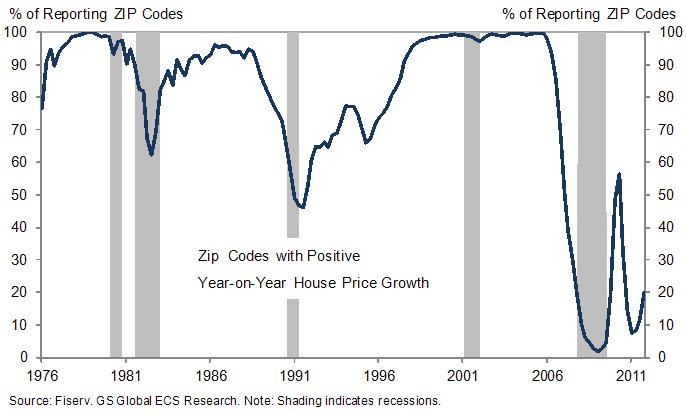Image: Obama’s record-setting tweet.
Here’s a roundup of informed opinions on what Barack Obama’s re-election will mean for markets. First, those who believe last night’s result sets stocks up for a rally. This camp points to historical returns under Democrats, the continuation of the ‘Bernanke put’, and the strong mandate Obama received with his clear victory:
- Jeremy Grantham, BMO: “History speaks pretty clearly that the markets do better with Democrats. Republicans’ ideas of what constitutes fiscal responsibility simply are not good for the stock market. Democrats have many tendencies, but one of them is to look after the workers, and actually that tends to be good for demand and good for markets.”
- Cullen Roche: “Romney has been very clear that he doesn’t approve of QE or the Fed’s policies under Bernanke. He’s explicitly stated that Bernanke will not be Fed Chief past 2014. What the market is really rooting for is the continuation of Bernanke’s policies so the market is indirectly rooting for Obama.”
- Jim Reed, Deutsche Bank: “the win for Obama likely ensures that money printing is here to stay which is market friendly. It’s still far too early to suggest what it means for the fiscal cliff though. Only time will tell on this front as it depends on how co-operative the Republicans feel after a defeat. This story will now slowly start to unfold.”
- Bill Deshurko, Covestor: “Wall Street will feel much better with either candidate winning by a large enough margin to claim a popular mandate for their policies — much the way Reagan was able to do after his solid defeat of Carter. Either candidate with a mandate will be in a much better position to avoid political deadlock and convince Congress to pass whatever they need to pass to avoid the fiscal cliff.”
Those who think the market’s likely to tank – or at least, stagnate – with four more years of Obama point to his less business-friendly policies (including taxation and regulations), the risks of ongoing loose monetary policy, and question Obama’s ability to quickly solve the fiscal cliff issue:
- Dorsey Farr, French Wolf & Farr: “The economy really needs a shot in the arm and that’s going to take new leadership and some new policies. The market will do better with a president who understands business, appreciates the virtues of capitalism, and demonstrates a willingness and ability to work with Congress to lead on these tough issues.”
- SocGen’s Kit Juckes: “Romney cuts taxes and spending and eventually replaces Bernanke with someone less dovish. This helps stocks, is bad for bonds; Obama raises taxes and healthcare, bad for stocks and therefore good for bonds.”
- Also from SocGen, this morning: “The US still must address the fiscal cliff over the coming weeks, with what will probably be a divided Congress. That is where the challenge lies. The US administration will have to renew more than half of the existing fiscal measures to avoid a marked slowdown in activity. This will have to go hand in hand with the first (smooth) signs of efforts in terms of fiscal discipline to satisfy rating agencies. Will it be enough to keep markets calm?”




